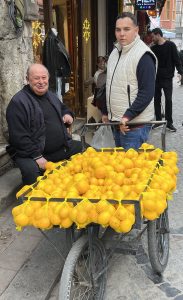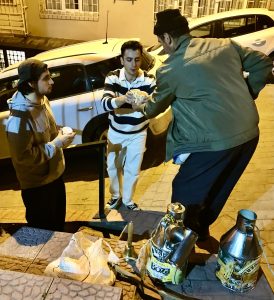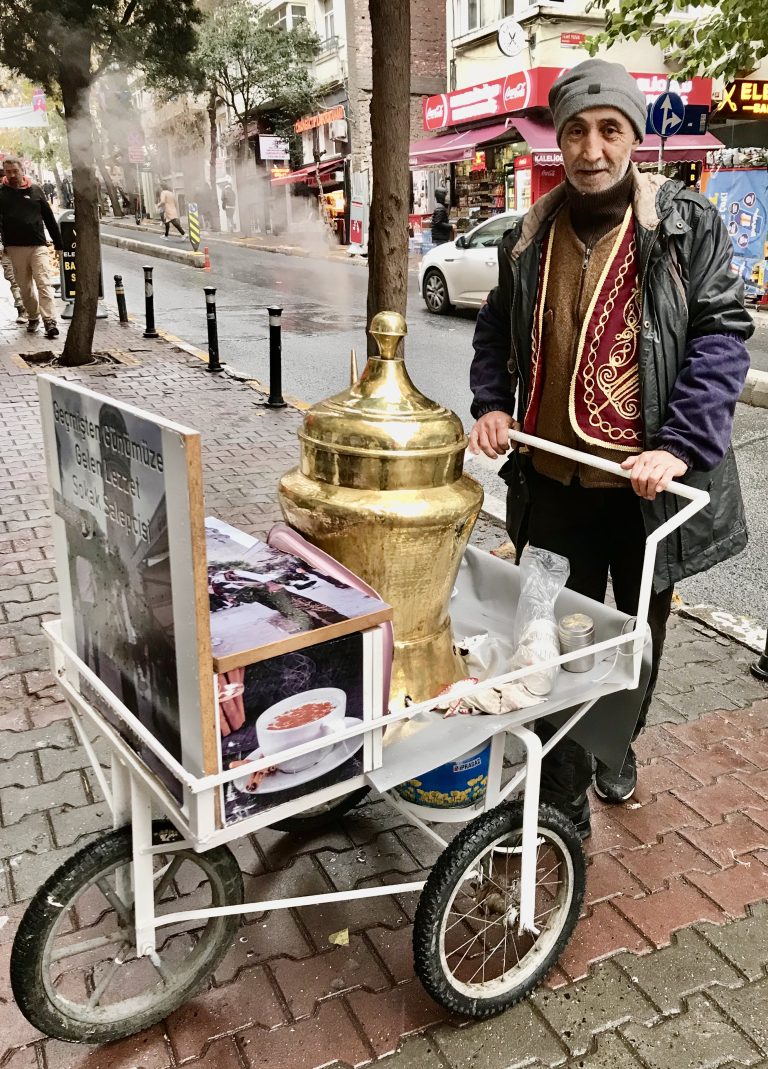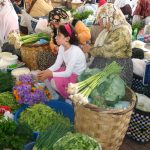Traditionally most Turks did their shopping in bakkals, sometimes called markets, small family-run grocery shops that sold staples such as rice and pasta alongside basic household goods such as matches and detergents.
Bakkals usually sold fresh eggs and a limited range of fruit and vegetables too. Turks also shopped in more specialist shops including the butcher’s (kasap), and the greengrocer’s (manav). However, most fresh produce was bought at the weekly pazar, a street market that would move around all the settlements in a particular area, with the biggest and most colourful pazar taking place in the largest local town.
In big cities every neighbourhood still has its bakkal but these have evolved into something more like convenience stores where people pick up the things that they forgot to buy in the supermarket. As elsewhere in the world, the more specialist shops are becoming an endangered species, seen off by the onward march of the supermarket.
For the time being you can still fight your way past great haunches of cow and piles of intestine to buy your chops, or steer your way round the garlands of dried tomato and okra that festoon shops catering for keen soup cooks, but as Turkey lines itself up with European Union health regulations, so more and more fresh produce is disappearing under plastic wraps, taking with it the evocative sights and aromas of the past.
Supermarkets
Even though Turkey has only had Western-style supermarkets for less than 35 years they have already captured one-third of the grocery market. In the future they will probably drive out the small grocery shops and street markets in the same way that they have done in the UK and USA although the process seems to be a bit slower here and butchers’ shops (kasap), green-groceries (manav) and bakeries (fırın) are still putting up a fight for survival alongside a surprising range of more specialist food shops such as pickle sellers (turşucu).
Shopping in a Turkish supermarket will present few surprises, with prices clearly displayed on the shelves and machines to check the prices of any items that have been overlooked. At the checkout you will be presented with an itemised receipt and will be able to pay with a credit, debit or touch-free (temassız) card. Increasingly self-service machines are being installed too. The main difference manifests itself in the more limited range of goods on sale especially outside the main conurbations where you will be astonished at the variety of tins and tubes of tomato paste available and surprised by the absence of much else.
The major supermarket chains are Migros and Carrefour. Macro is the Waitrose of Turkey, with a more upmarket range of goods on offer., Şok and A101 sell a smaller range of goods but at discounted prices.
Increasingly the supermarkets have large out-of-town and shopping-mall stores as well as smaller city-centre branches. Migros, for example, designates its stores with between one and five Ms to indicate their size and the range of goods available: a one-M Migros sells roughly the same items as a corner bakkal, a two-M Migros has a wider range of goods and a five-M Migros sells everything from clothes and stationery to food and electrical goods.
Look out for two-for-the-price-of-one offers and other marketing wheezes familiar from the West. However, you need to be careful because the usual Western assumption that bigger packets will be proportionately cheaper doesn’t always apply in Turkey – a box of 100 teabags usually costs disproportionately more than two boxes of 48, for example. Just before Ramazan there are sometimes special offers, including money-back coupons that have to be used within a certain time frame. However, many food prices actually go up over Ramazan.
Expect supermarket prices to be more expensive in the seaside resorts and in the more upmarket neighbourhoods of İstanbul and Ankara.
Both Carrefour and Migros offer home-delivery services. For everything else you can rely on getir.com, hepsiburada. com and trendyol.com.
Read about Turkey’s best street markets: Turkey’s 10 Best Markets
 Itinerant traders
Itinerant traders
Turkey still has many street traders who travel around selling their produce from mobile stalls or out of the back of lorries and cars. In particular there are still many itinerant fruit and vegetable vendors, as well as itinerant sellers of plants in spring. In rural areas some of these traders drive around the streets calling out their wares so that women who are not expected to wander far from their homes can shop in comfort. Elsewhere they park in a central location and set up an ad hoc market. You can expect to find everything from fresh honeycomb to tasty special breads and even rugs being sold in this informal fashion.
Other itinerant traders include knife-grinders (bileyci), people with laminating machines for covering ID cards, tinsmiths who will tin the insides of copper pots (kalaycı), and old-fashioned scrap-metal traders (hurdacı/eskici) who collect people’s old stove buckets and other paraphernalia.
Even in the big conurbations street traders still shout their wares. In Çukurcuma where I live we are still visited by mobile manavs, fish merchants, strawberry sellers, sellers of lemons and garlic, and purveyors of diary items who travel in from the countryside on a weekly basis. In winter boza and sahlep sellers also do the rounds.
For a sense of what life is like for some of the men who do still tramp the streets with their wares, I strongly recommend Orhan Pamuk’s A Strangeness in My Mind which describes the hard life of a street boza seller.




